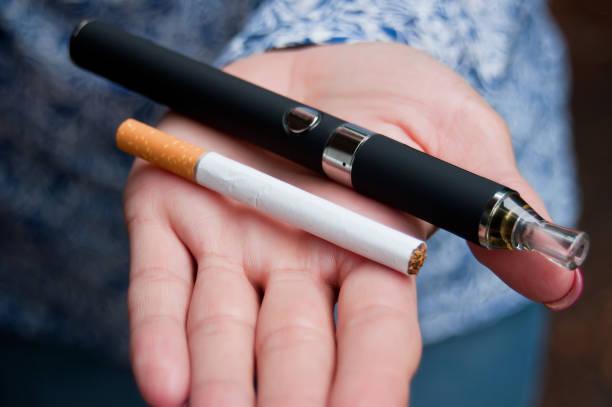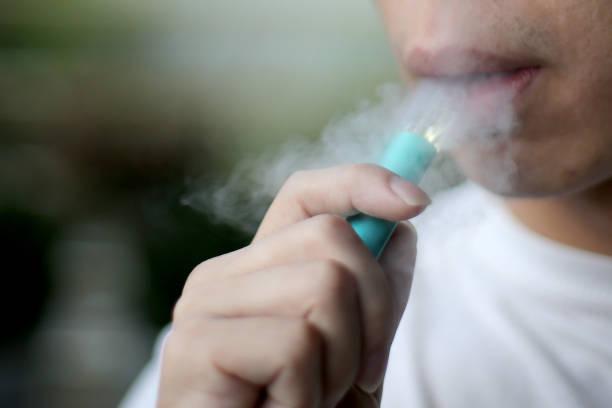In a dramatic move aimed at striking a balance between taxation and consumer behavior, the Philippines government is considering a temporary halt on tobacco tax hikes. The goal is to address the rising issue of illegal cigarette trade while maintaining a steady flow of revenue from the legal market. Right now, the tax on each pack of cigarettes is 60 pesos (around $1.03), with a 5% increase set each year. But here’s the catch: packs of illegal cigarettes are being sold for as low as 40 pesos (roughly $0.69), often even below the tax rate itself. This price gap is playing a major role in the surging illegal cigarette market in the country.

The Rise of Illegal Cigarettes and the Consequences on Tax Revenue
The Philippines is no stranger to the growing problem of illegal tobacco trade. According to data from the Food and Nutrition Research Institute (FNRI), the smoking rate in the country has increased from 18.5% in 2021 to a staggering 23.2% in 2023. But that’s not the only concerning statistic. The market share of illegal cigarettes has seen a major spike—from 13.6% to 19.8% over the same period. Meanwhile, despite the uptick in smoking rates, the Bureau of Internal Revenue (BIR) reports a sharp decline in tobacco tax collections. In 2021, the government raked in 176.48 billion pesos (about $3 billion) from tobacco taxes, but last year that figure dropped to 134 billion pesos (roughly $2.3 billion), falling short of the expected target by over 51 billion pesos.
Why is this happening? The Philippines Tobacco Institute (PTI) President, Jericho Nograles, argues that the flood of untaxed cigarettes flooding the market is a huge driver of the illegal trade. “The price difference between legal and illegal cigarettes is enormous,” he said, “with legal cigarettes being up to five times more expensive than their illicit counterparts.”
A Potential Solution: Pausing the Tax Hike
In response to the growing black market problem, the PTI, along with the National Tobacco Administration (NTA), has proposed a temporary pause on any further increases to tobacco taxes starting in 2026. This plan is being hailed as a “pragmatic” and “targeted” solution to rein in illegal cigarette sales, which have become more attractive due to their lower price point.
Belinda Sanchez, the Administrator and CEO of the NTA, explained, “By halting the planned increases in 2026, we can stabilize the market for the time being and reduce the price gap between legal and illegal cigarettes. This would allow legal manufacturers to become more competitive again, which is crucial for increasing the domestic demand for locally grown tobacco leaves.”
This strategy, according to Sanchez, would give legitimate manufacturers a chance to recover from the market imbalance caused by rising taxes. “The widening price difference between legal and illegal cigarettes, combined with the consistent tax hikes, is fueling smuggling and counterfeit products,” Sanchez said. “If we don’t act soon, the legitimate tobacco market could collapse under the weight of illegal competition.”
The Debate: Should Tax Increases Continue?
Despite growing support for the pause, there is a new challenge on the horizon. The Philippine House of Representatives recently passed House Bill 11360 on its second reading, which suggests a different approach: lowering the tax rates on tobacco products, including vapes (electronic cigarettes). This bill, led by Congressman Joey Salceda of Albay, proposes a more gradual increase in taxes, with a 2% increase in even-numbered years starting in 2026, and a 4% increase in odd-numbered years starting in 2027, continuing until 2035.
Salceda, who is also the Chair of the House Ways and Means Committee, has expressed concerns that the country’s rising tobacco tax rates are contributing to a sharp decline in tax revenues. “Despite the tax hikes, the tobacco tax collections continue to drop,” he said. “This clearly indicates something is wrong, and we can’t just ignore it.”
The proposed tax structure is significantly lower than what was envisioned under the 2012 “Sin Tax Law,” which required cigarette taxes to rise to 60 pesos per pack by 2023, followed by annual increases of 5%. Under the new proposal, however, the tax would only grow by 2% every even-numbered year, and 4% in odd-numbered years, a more modest approach.
The Black Market Boom: A Symptom of High Taxes?
Illegal cigarette sales in the Philippines have been steadily rising, especially as the government continues to impose higher tobacco taxes. According to a recent report, in 2020, the share of illegal cigarettes in the market stood at just 5.3%. Fast forward to 2023, and that number has surged to 13.2%. What’s worse, the market share of illegal cigarettes among consumers has grown to 13.9%, which signals a significant shift toward illicit products.

Salceda argues that these rising black market numbers are a direct result of the ever-increasing tax burden on tobacco. “The higher taxes lead to a proliferation of counterfeit and smuggled cigarettes, which are much cheaper than legal cigarettes,” he noted. “Low-income consumers, who find it hard to afford regular cigarettes, are increasingly turning to these illegal products.” He added that the government is losing millions in tax revenue as a result of the soaring illegal market.
To combat this issue, the new proposal aims to halt the scheduled tax hikes for now, with the hope that this will close the price gap between legal and illegal cigarettes, making it less enticing for consumers to turn to the black market. If passed, this policy could stimulate legal cigarette sales and boost government tax collections, which have taken a hit in recent years.
The Road Ahead: Will This Solution Work?
The government’s path forward is far from clear. The Philippines House of Representatives must finalize and vote on the bill by February 7, 2025, before their break for the 2025 elections. If the bill is not passed by then, the House will reconvene briefly between June 2 and 13 for a final push before the 19th Congress officially adjourns. With the upcoming election season potentially disrupting the legislative process, there’s no telling whether the bill will make it through in time.

Nevertheless, the ongoing debate surrounding tobacco taxes underscores a much larger issue: how to balance public health goals with the economic realities of the tobacco industry. Lawmakers are grappling with the challenge of curbing smoking rates while ensuring that tax policies do not inadvertently harm legitimate businesses and exacerbate the black market.
For the moment, it seems that the Philippines is on the verge of making a major decision that could reshape the future of tobacco taxation in the country—one that may have far-reaching implications for both smokers and the government. Whether the solution lies in tax cuts, tax freezes, or stricter enforcement, only time will tell.

